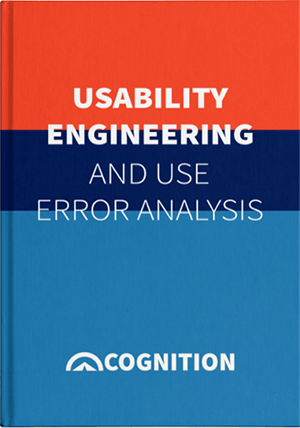Cognition Blog
Our blog navigates product development and compliance for the life science industry. Our solutions save time and money, delivering products with less risk.

Product Development | Structured Data | AI
By:
Dale Gallaher
October 21st, 2025
Artificial intelligence (AI) is reshaping how products are designed, built, and brought to market. From automating routine tasks to providing predictive insights, AI promises to accelerate engineering and improve outcomes across industries. But while the potential is enormous, the reality is clear: AI is only as effective as the data it’s built on.

FDA | Product Development | Risk | Industry Updates | Risk Management | Webinar | Compass MED
By:
Cognition Corporation
August 14th, 2025
Medical devices are becoming more complex, more connected, and increasingly used in home settings by people with varying levels of technical skill. Designing for safety isn’t just good practice—it’s a regulatory and ethical imperative.

Subscribe to the blog and get this guide for free

FDA | Product Development | Industry Updates | Risk Management | Webinar | Compass BIO | Biopharma
By:
Cognition Corporation
August 1st, 2025
If you missed our recent panel discussion, “From Concept to Compliance: Navigating Risk and Regulatory Submissions Across the Life Sciences,” the full recording is now available to watch on demand.

FDA | requirements | design controls | Medical Device | Product Development | Industry Updates | Design | Compass MED
By:
Sally Carter
March 25th, 2025
In the medical device industry, where precision and compliance are paramount, staying ahead of regulatory changes is critical. With FDA finalizing the alignment of its Quality System (QS) regulation with ISO 13485 by February 2026, medical device companies need to act now. This alignment has been expected as the international standards and FDA regulations have been converging for Quality System expectations for years. Since FDA announced its intent to align with ISO 13485 in 2018, the change should not be a surprise to medical device companies, but the implementation still requires careful and detailed attention to specifics. Fortunately, solutions like Cognition Corporation’s Compass MED provides a proactive way for companies to navigate complex regulatory landscapes and stay compliant from the start.

Medical Device | Product Development | Risk Management | Design | Process | Documentation
By:
Sally Carter
September 29th, 2022
How a risk-based design approach provides safer and ultimately better quality products to market. Product designs are stronger when risk is inherently considered. Not everyone has the experience and instincts to naturally consider the critical factors required in a comprehensive approach. A solid process ensures risk is addressed consistently throughout product development by all of the stakeholders. It is not enough to intuitively consider risk when designing a product; decisions need to be articulated and documented - this documentation is used to support the design choices throughout the product's life.

Medical Device | Product Development | Risk Management | Webinar
By:
David M. Cronin
September 9th, 2022
Medical device development is a complex process, with a critical element focusing on risk management. The consequences of not managing risk properly can be catastrophic.

design controls | Product Development
By:
Ansgar Liening
June 15th, 2022
An introduction to how smart data utilizes information and actionable context to support business-critical decisions.

Medical Device | Product Development | Risk | Risk Management
By:
David M. Cronin
September 28th, 2021
In the highly regulated world of medical device manufacturing, the relentless requirement to minimize and mitigate risk places a huge onus on design, development, and manufacturing teams. That’s why companies, large and small, are looking for software solutions to help ensure consistency and objectivity in the creation, auditing, and monitoring of critical risk management processes.

Medical Device | Product Development | reusability
By:
Bradley Sylvestre
September 14th, 2021
Key takeaway: The ability to reuse product data can dramatically reduce the time taken to design, gain regulatory approvals, and ultimately bring new medical devices to market. Time equates to money in any business, and in the world of medical device design and manufacturing, that can mean BIG numbers! Depending on the route taken, following FDA regulations, the average cost to bring a medical device to market through the Premarket Approval pathway is $94 million. The less intensive 510(k) process averages out at $31 million.

info@cognition.us
1 (781) 271-9300
24 Hartwell Avenue,
Lexington, Massachusetts 02421
©2026 Cognition Corporation | Privacy Policy